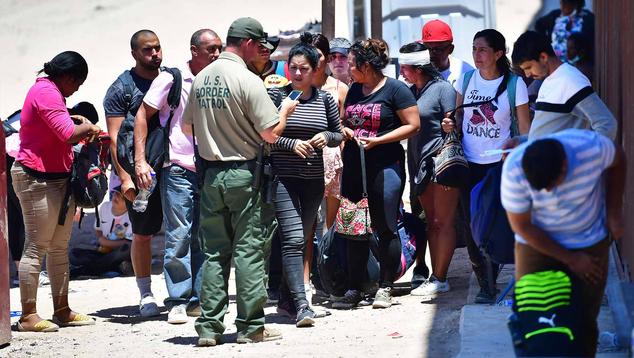During the 2021 fiscal year, the U.S. Border Patrol apprehended nearly 1.7 million migrants who crossed the U.S.-Mexico border illegally -- the highest number ever on record.
Migrants from Mexico made up the largest single-country share at just over 608,000. But migrants who entered the U.S illegally from El Salvador, Honduras and Guatemala -- the Northern Triangle -- together accounted for nearly 684,000.
Officials at the border are bracing for another influx this year. As of April 2022, the Border Patrol had already detained as many migrants who entered the U.S. illegally from the Northern Triangle as it had at the same point last year.
The situation has those at the border on high alert, but it is hardly new. The great exodus from the region has been happening over the past three decades. The overall number of migrants from Central America has grown by 137% between 1990 and 2020, according to UN DESA. Within the region, Honduras (+530%) and Guatemala (+293%) have two of the highest growth rates in migration (ahead of Mexico at +124%), while growth rates in El Salvador are much smaller (+29%).
Leaders from the Americas are gathering this week in Los Angeles to discuss this issue, in addition to security, trade and the overall future of the region.
The questions each leader should be able to answer regardless of their politics: How many more people from Latin America could be coming to the southern U.S. border? Why do they want to come? What is the plan? And do leaders have the right analytics to understand and fix the problem?
Roughly 455 million adults live in the 33 countries that make up Latin America and the Caribbean. Gallup has surveyed almost all of them for the past 15 years, asking adults in these countries if they would like to move to another country permanently if they could.
In 2021, 37% said "yes." This means roughly 169 million Latin Americans would like to migrate somewhere.
Gallup then asked where they would like to move.
Of those who want to leave their country permanently, 36% -- or 62 million -- said they want to go to the United States.
Seekers of citizenship or asylum are watching to determine exactly when and how is the best time to make their move.
In addition to finding a solution for the migrants currently at the border, let's include the bigger, harder question -- what about all of those who would like to come? What is the message to them? And what is the message for their leaders?
What is the 10-year plan?
330 million U.S. citizens are wondering. So are 62 million Latin Americans.




